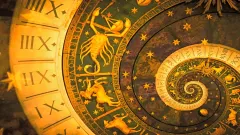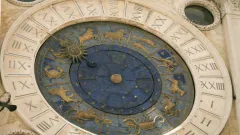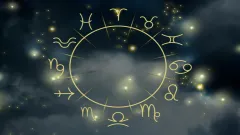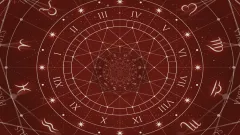We are aware of these individuals' extraordinary talent and intelligence. But when you compare them to one another, how smart are they? These 13 individuals are among the smartest people on the planet, or as smart as two Western scientific studies could make us.
Although it can be challenging to estimate the IQ levels of people who passed away centuries before a sophisticated scientific intelligence benchmarking was developed, here are two of the most frequently cited studies: Tony Buzan's 1994 Book of Genius, which ranked the 100 greatest geniuses in history, and American psychologist Catherine Cox's 1926 Early Mental Traits of 300 Geniuses, which calculated the IQs of geniuses from the fifteenth to the nineteenth centuries.
Top 10 Most Intelligent People In The World of All Time
Their listings differ from one another. Da Vinci scored 220 points according to Buzan, but only 180 according to Cox, the inventor and artist. Even so, it's entertaining to average the two lists to find out which of these geniuses outperforms the other brainiacs in terms of pure IQ performance. Though it's impossible to know if those who didn't make it into the top twenty on either list are any less intelligent than the others on it, they are instantly eliminated from the competition.
Furthermore, luminaries of the 20th century including Stephen Hawking, Enrico Fermi, and Albert Einstein were not on the list. You'll also notice that these are geniuses from Europe; as a result, mind masters from Asia did not show. Let's go right to the point: they are the brightest minds on the planet, with astoundingly high IQs and accomplished feats.
10. Baruch Spinoza – IQ level: 175

Image Source: Twitter
A philosopher from Holland. He was one of the first to provide the framework for the Enlightenment, a period when science began to question the Church's established doctrines. The era saw significant advancements in science, politics, and economics, led by Spinoza's seminal work, Ethics, which casts doubt on the Bible's historical veracity.
9. Michelangelo – IQ level: 177

Image Source: Twitter
Another Renaissance artist, Michelangelo, an Italian sculptor, painter, architect, poet, and engineer, is associated with the French philosopher. Renowned for his works, which include The Creation of Adam, The Last Judgment, David, Pieta, and the Sistine Chapel. Many experts regard him as the greatest artist of all time; this is a subjective claim with merit, given his contributions to High Renaissance painting.
8. Desiderius Erasmus – IQ level: 177

Image Source: Twitter
A Dutch social critic, theologian, and humanist. During the Protestant and Catholic conflicts of the Reformation era, he was a fervent supporter of religious tolerance. He produced a fresh batch of Latin and Greek New Testament editions using humanist methods, would become important resources during this turbulent period. Erasmus remained a Catholic despite his criticisms of the Church because he thought internal reforms within the Catholic hierarchy could take place without the need to find a separate religion.
7. Rene Descartes – IQ level: 177

Image Source: Twitter
The writer, mathematician, and philosopher from France. Because of his publications, he is referred to be the Father of Modern Philosophy. Remarkably, colleges throughout the world still use the Meditations on First Philosophy as a standard reference. He is also well known for his contributions to mathematics, particularly the creation of the Cartesian coordinate system and the bridging of algebra and geometry that allowed calculus to evolve.
6. Galileo Galilei – IQ level: 182

Image Source: Twitter
The Italian physicist, astronomer, mathematician, and philosopher. He is best known for giving us the telescope. But that’s just a mere speck in his wide-reaching scientific achievements, namely the discovery of planetary objects such as Callisto, Galilean moons, Europa, Ganymede, and Io. He was also responsible for confirming through actual observation the heliocentric nature of the solar system—the sun is at the centre and the planets revolve around it—putting him at the crosshair of the Inquisition during his time.
5. John Stuart Mill – IQ level: 182.5

Image Source: Twitter
A political economist and philosopher from England. He is most recognized for his major contributions to liberalism, the philosophy of individual freedom in opposition to unrestricted governmental authority in administering the economy. Mill’s approach is also extensively employed today to conclude induction, a tool that attorneys and scientists have embraced in furthering their cases.
4. Gottfried Wilhelm Leibnitz – IQ level: 191

Image Source: Twitter
The philosopher and mathematician from Germany. The Law of Continuity and the Transcendental Law of Homogeneity, two of his most important contributions to the development of calculus, are acknowledged as having happened independently of Newton. He was also a prominent inventor in the area of mechanical calculators, which make complex mathematical calculations easier for non-geeks like us to do.
3. Isaac Newton – IQ level: 192

Image Source: Twitter
The mathematician and physicist from England. Many of the mathematical concepts that form the foundation of today's engineering marvels are credited to him. One of the most important scientific publications of all time, Mathematical Principles of Natural Philosophy signals the beginning of the European Enlightenment and the subsequent technological revolution that gave rise to contemporary technology.
2. Leonardo Da Vinci – IQ level: 200

Image Source: Twitter
The Renaissance Man from Italy. He was a brilliant man in both science and art. Though most recognized for his painting Mona Lisa, Da Vinci was much more than just a gifted painter. In addition to being an inventor, mathematician, and engineer, he was also a writer, sculptor, geologist, geographer, and botanist. He was the perfect example of a Renaissance man, who used his vast knowledge to improve the lot of humanity.
1. Johann Wolfgang von Goethe – IQ level: 220

Image Source: Twitter
The poet, dramatist, writer, politician, and diplomat from Germany. His literary masterpieces, including Faust, Sturm und Drang, and The Sorrows of Young Werther, are among his most well-known creations. Goethe pursued scientific research, especially in natural science, while being better known for his literary talent. His vast collection of minerals was a result of his in-depth geological research.
Although these individuals may seem exceptional and uncommon, brilliance is more common than we realize. "Everyone is brilliant," Einstein once observed, "but if you judge a fish by its ability to climb a tree, it will think it is stupid for the rest of its life."
Also Read: Top 10 Places to Visit in Winters in India in 2023























